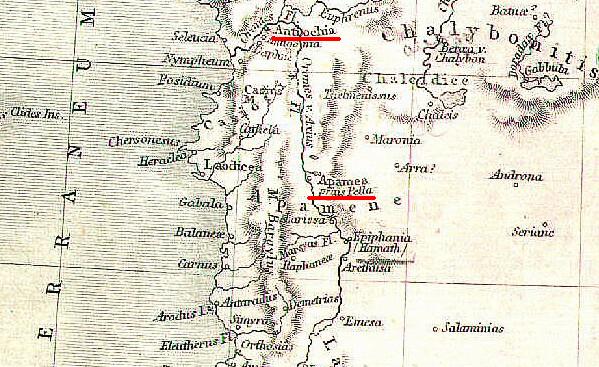Lessico
Oppiano di Apamea
Poeta di
Apamea sull’Oronte![]() , in Siria, del III secolo dC. Compose Cynegetica (La
caccia - κύων, genitivo
κυνός, è il cane o la cagna), poema in 4 libri in esametri che ha per tema la caccia, dedicato
all'imperatore Caracalla (Lione 186 - Carre 217) dal quale ricevette una moneta d'oro per ogni verso,
e Ixeutica
sull’uccellagione (Caccia col vischio
, in Siria, del III secolo dC. Compose Cynegetica (La
caccia - κύων, genitivo
κυνός, è il cane o la cagna), poema in 4 libri in esametri che ha per tema la caccia, dedicato
all'imperatore Caracalla (Lione 186 - Carre 217) dal quale ricevette una moneta d'oro per ogni verso,
e Ixeutica
sull’uccellagione (Caccia col vischio![]() - ἰξός è il
vischio).
- ἰξός è il
vischio).

Oppian or Oppianus (in Greek, Ὀππιανός) was the name of the authors of two (or three) didactic poems in Greek hexameters, formerly identified, but now generally regarded as two different persons.
Oppian of Apamea (or Pella) in Syria. His extant poem on hunting (Cynegetica) is dedicated to the emperor Caracalla (186-217), so that it must have been written after 211. It consists of about 2150 lines, and is divided into four books, the last of which, seems incomplete. The author evidently knew the Halieutica, and perhaps intended his poem as a supplement.
Like his namesake, he shows considerable knowledge of his subject and close observation of nature; but in style and poetical merit he is inferior to him. His versification also is less correct. The improbability of there having been two poets of the same name, writing on subjects so closely akin and such near contemporaries, may perhaps be explained by assuming that the real name of the author of the Cynegetica was not Oppian, but that he has been confused with his predecessor. In any case, it seems clear that the two were not identical.
A third
poem on bird-catching (Ixeutika), also formerly attributed to an Oppian,
is lost; a paraphrase in Greek prose by a certain Eutecnius is extant. The
author is probably one Dionysius, who is mentioned by the Suda![]() as the author of a treatise on stones (Lithiaca).
as the author of a treatise on stones (Lithiaca).